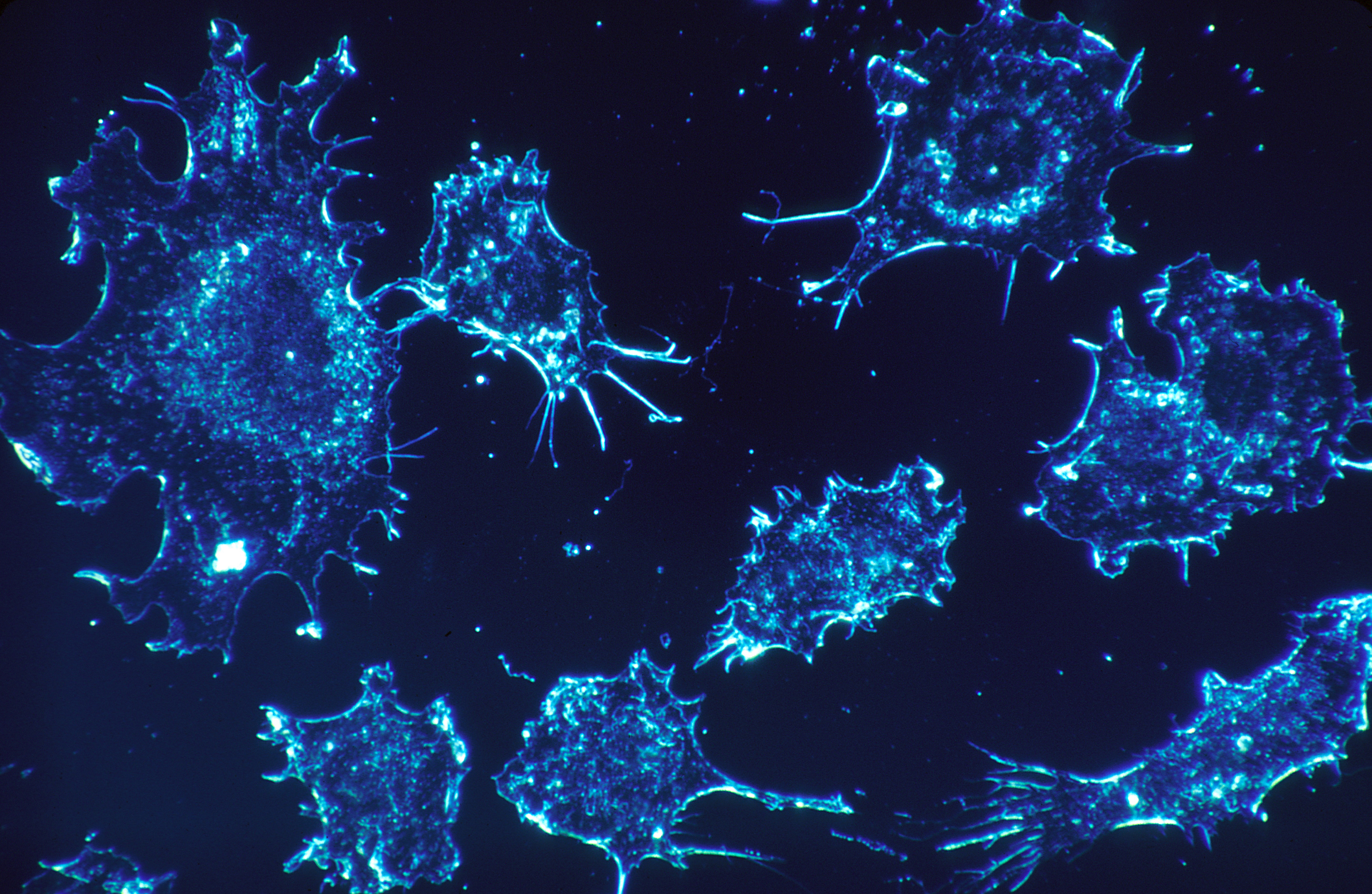
Cancer cells begin as normal cells, but morph over time into mutants [Image credit: National Cancer Institute, public domain]
Imagine for a moment that you need an instruction booklet to survive. Not just to survive, to do anything. Turn to page 643 to learn how to eat. Page 354 to know how to talk. Page 276 will tell you how to listen. Page 1 has instructions on how to reproduce, so you do. You begin the process of making a daughter, who will also need a copy of the instruction booklet. You type it up, but you aren’t a very good typist — you make mistakes. Spellcheck gets most of them, but a few small errors slip through. It’s fine, though. They’re small mistakes and the instructions will still be legible.
She grows up and pages through her instruction booklet. She eats food and she talks and, in time, she reproduces. She writes another booklet, but she inherited your bad typing skills. She makes mistakes, but they’re small and it’s fine. She has a daughter too.
Her daughter reads the instruction booklet and has some trouble understanding the words. The typos are adding up and some of the sections have become muddled. In some places entire words have changed. But they’re small enough changes, so she’s mostly fine. She eats food and reproduces. She makes mistakes. So does her daughter. So does her granddaughter. So does her great-granddaughter.
Eventually there are entire sections that read completely differently. The instructions don’t say to stop growing, they say to keep growing. They say to stop listening, to eat more than ever, to reproduce faster. So she does. Her daughter does the same. So does her granddaughter.
Soon this one lineage is expanding exponentially. They’re not doing anything damaging per se, but they’re taking up too much space. Other families get pushed out, and it becomes harder for everyone to do their jobs. There isn’t enough space or food. At some point, they can’t go on.
This is cancer. This is how a cell’s DNA instruction booklet accumulates mistakes and becomes an error-ridden nightmare that fuels uncontrolled growth. Because cancer is just that: growth. It’s just one cell that has enough errors to start behaving differently. It grows a little faster. It ignores signals to stop replicating. It probably isn’t all that abnormal to begin with. But each generation accumulates more errors, and soon the growth is exponential. Normal cells get pushed aside, and without them your organs stop working. At some point, you can’t go on.